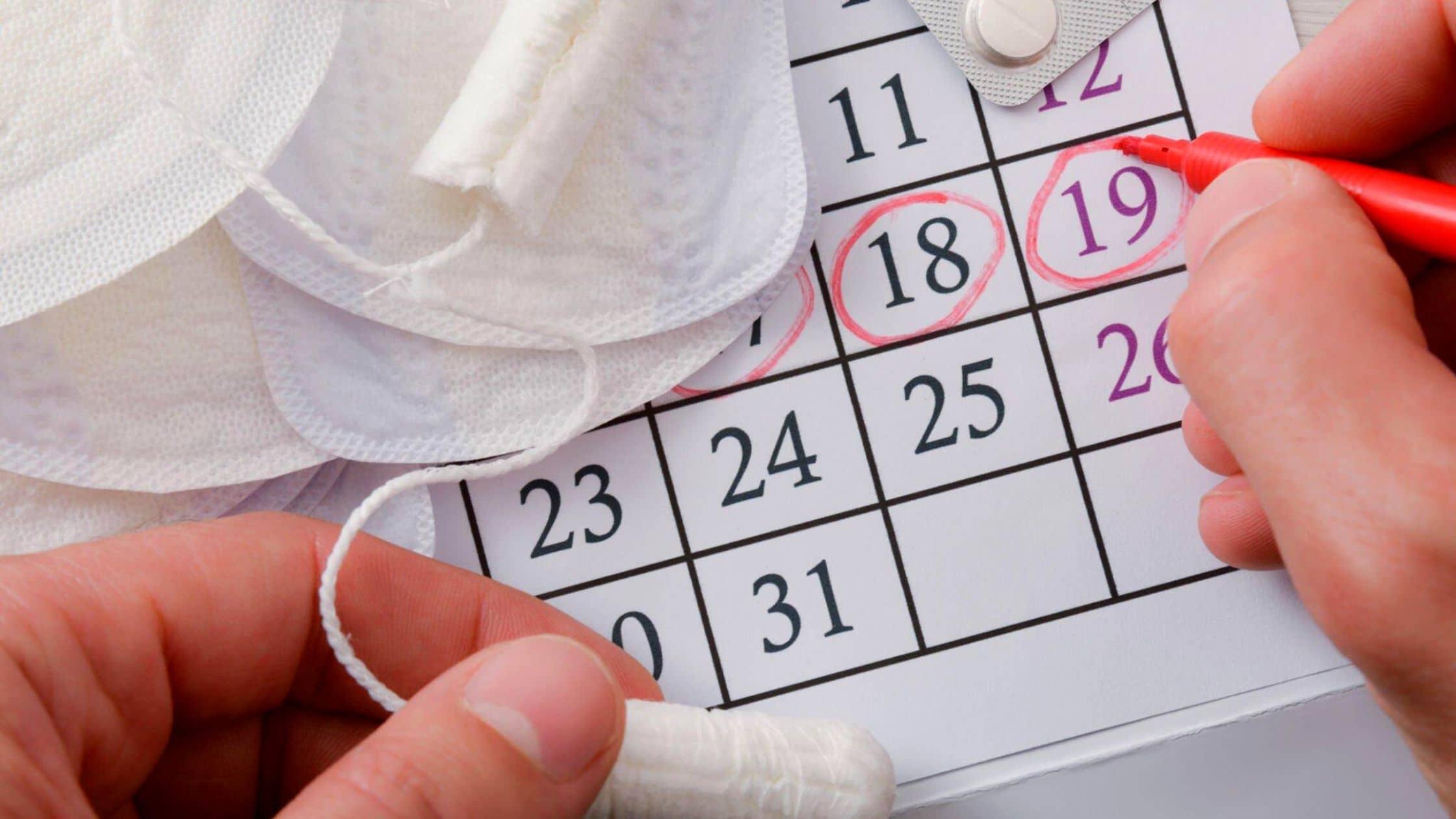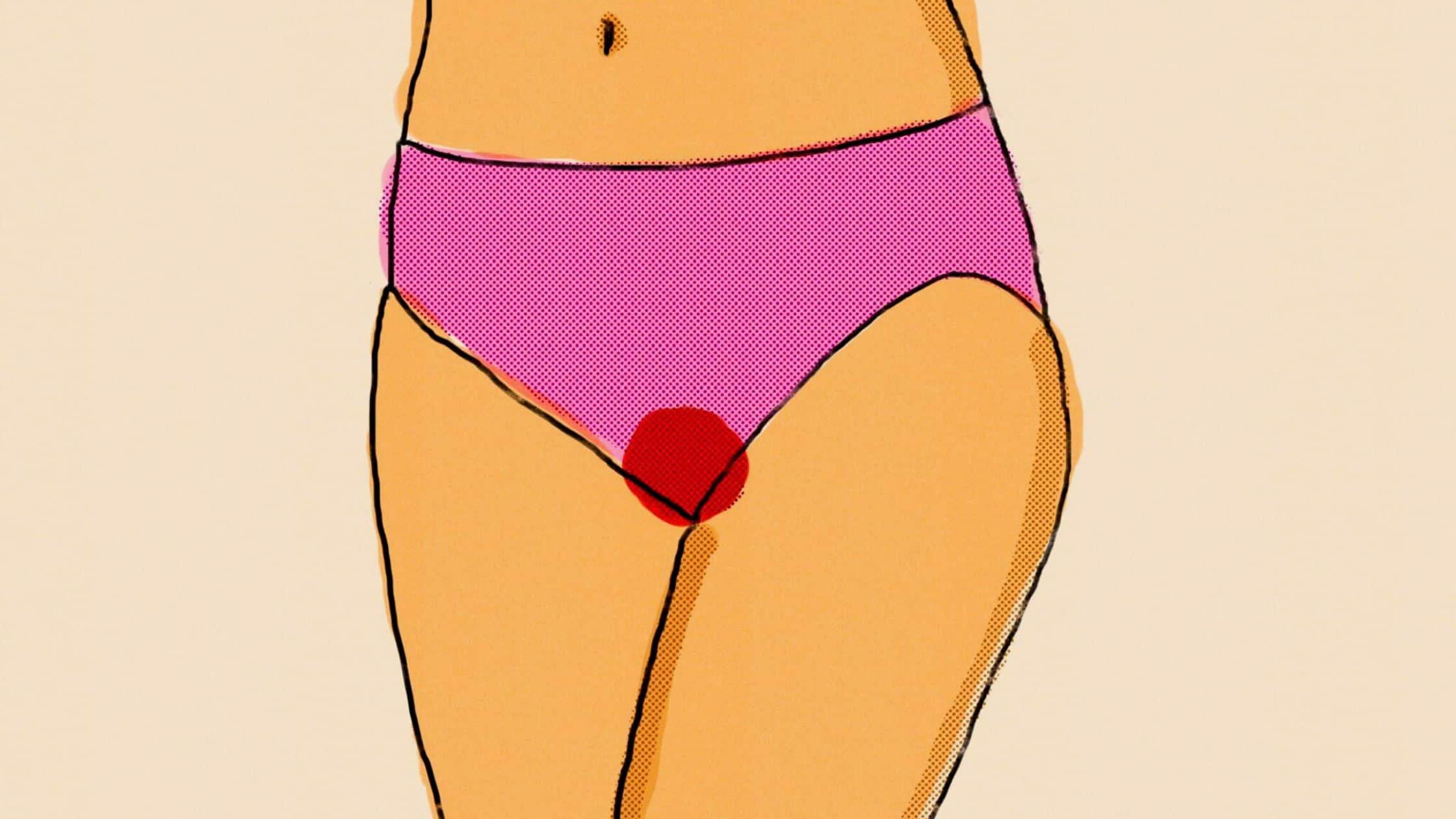Health
Period Only Lasts For 2-3 Days – Causes And How To Treat Them?

To; begin with, it is essential to know that every single woman has a menstrual cycle different from any other. The process varies from woman to woman depending on several factors, including age, birth control, food habits, mental or psychological well-being, medications, etc.
Hence, the number of days your period will last may vary accordingly. If it is too different from usual, you should immediately consult your gynecologist, but a slight variation in the number of days should not be much of a concern.
Normal Menstruation Cycle – What Causes The Menstrual Cycle Date To Change?
On average, for every woman, the menstrual cycle runs for 30 days. While for some women, it might be 28 days, for others, it may be as many as 35 days. Some women have their periods for 5 days, while others have them for as little as 3 to 4 or 6 to 7 days.

This entirely depends on the regular natural cycle of the woman. A woman’s menstrual cycle begins on the first day of her period, and the 14th day is generally the ovulation day for women with regular menstrual cycles of 28 days.
What Causes The Periods To Last For 2 To 3 Days?
As mentioned before, for every woman, the cycle varies depending on several factors, including age, birth control, food habits, mental or psychological well-being, medications, etc. Hence, the number of days your period will last may vary accordingly. Here are a few reasons why the number of days is fewer than normal. They are:
- Pregnancy And Implantation Bleeding
We often mistake implantation bleeding for an irregular period. Yet it is not quite so. An implantation bleed occurs during conception. When an egg gets fertilized, it attaches itself to the uterus walls. Sometimes, this is followed by vaginal bleeding that lasts for a day or two. This is often way lighter and shorter than regular periods but is often confused with normal periods.
- Puberty or hormonal changes
Puberty is when the natural changes in hormones occur, and thus the menstrual cycle is not yet fixed. During these years, the entire cycle may fluctuate. Periods may be heavier or lighter, more prolonged or shorter. It is pretty natural, and there is nearly no reason to panic or worry.
- Stress and anxiety
As mentioned, mental and psychological well-being large affects the menstrual cycle. Too much stress and anxiety can delay or even shorter periods, causing much concern where none is needed.
- Pre Menopause
Immediately before Menopause in women in the late 40s and 50s is one of the significant reasons why periods can last for only 2 to 3 days. During this age, there is a slight decline in the hormones secreted in the body, significantly shortening the number of days for the periods to occur.
- Medical reasons
It is not only birth control that causes changes in the menstrual cycle but also antidepressants, steroids, and blood thinners that have the same effect. Medicines have different components which affect the cycle in their ways. This may shorten the periods significantly.
- Other diseases
Diseases like thyroid or polycystic ovary syndrome affect the menstrual cycle. Some may cause heavier periods, while others may shorten the length.
Is It Common For Periods To Only Last For 2 To 3 Days?
While it may not be ubiquitous, it is very normal. Usually, every woman has her period for 3 to 5 days; hence even if it is a day shorter; it is not a cause for concern. Some women consistently have periods for 3 to 4 days.

For them, a period lasting for two to three days is not abnormal. If you usually have your periods for 6 to 7 days and it suddenly drops down to 2, you should consult your doctor.
When Should You Seek A Doctor’s Advice?
If your periods normally last for 5 to 7 days and suddenly drop to 2, you should consult your doctor. Moreover, if terrible cramps accompany your periods in the lower abdomen, headaches, etc., it would be wise to consult a gynecologist. You should consult your gynecologist if you have been facing such irregular periods for a few months consecutively.
How are abnormal periods treated?
The remedy of unusual menstruation or menstrual cycle relies upon the following underlying reasons:
- Proper regulation of periods:
Hormones like Progestin or Oestrogen are generally prescribed to manage heavy bleeding for women during their periods.
- Pain and cramping management:
Mild cramps and pain are usually controllable with the aid of over-the-counter pain relief medication (for instance ibuprofen or acetaminophen). Aspirin might increase blood flow in the process of relieving the same and is therefore usually not advocated.
Taking a warm shower or using a traditional heating pad is the best, complication-free way of alleviating cramps.
- Uterine fibroids:
Uterine fibroids causing abnormal periods may be handled either medically or even, if required, surgically.
What Are The Precautions To Maintain A Normal And Healthy Menstrual Cycle?
Hormonal changes keep affecting the cycle now and then. However, there are a few days in which you can keep your menstrual cycle healthy and practice proper self-care:

- Try to live a healthy life through exercise and workouts, but reasonably. Try to ingest nutritious foods. If you need to lose weight, accomplish that healthily rather than turning to fast diets that substantially restrict your daily calories and affect your physical cycles.
- Make it positive to get sufficient rest. Lack of sleep can often affect periods. Try to live a stress-free life.
- If you are an athlete, reduce or stay away from strict exercise routines. Excessively tiring activities can lead to abnormal periods.
- Use contraceptive strategies and medicines as directed. Keep changing your tampons and sanitary napkins for about 4 to 6 hours to avoid infections and irregularities in periods. Consult a gynecologist for regular check-ups to avoid irregularities.
Expert Advice
According to a report published by PloS One in South Korea, more than 14% of women between the ages of 20 and 55 face certain irregularities in their periods.
Evora Center for Menopause and Sexual Health’s director, Becky Lynn, states that it is a widespread belief that all women have a menstrual cycle of 28 days.
But quite contrary to this, women have a menstrual cycle of 35 days and a minimum of 21 days. According to Becky Lynn, before stating that a woman has irregular periods, she must calculate the number of days for three consecutive months.
She has irregular periods if the cycle is outside the limit of 21 days and 35 days. But anything within it is perfectly natural. Moreover, if a woman has one or two-day periods consecutively for three months, she should consult a gynecologist.
Otherwise, no such consultation is required if the period lasts only 2 days a month or two.
FAQs
- Why did my period last for only 2 days?
One of the reasons why your periods lasted for only 2 days might be that your body lacks proper Oestrogen quantity. Oestrogen is what is required to create the endometrium that breaks and flows out during the periods. Lack of Oestrogen in the body will cause a short and scanty blood flow, thus making the period last for only a day or two.
- Should I take a pregnancy test if my period was only 3 days?
If your periods usually last for only 3 to 4 days, you might not need to take a pregnancy test. But if you have had and protected sexual relations with your partner after your last period and your period lasts only for a day or two, you might want to take a pregnancy test.
- Why did my period end after 3 days?
Apart from the fact that there might be some blood tissues or clots blocking your cervix and, therefore, the natural blood flow during the periods, your body might also be lacking in Oestrogen. Usually, a period of 3 to 5 days is considered quite normal.
- What hormone causes shorter cycles?
The lack of progesterone in the body might be the underlying cause of a shorter cycle. This might be very common in the perimenopause period. There is no requirement to worry too much.
- Are shorter cycles better?
Shorter cycles might not be very comfortable and are also known to reduce pregnancy chances significantly. Cycles of 26 days or less are considered short cycles. This might not appear to be a big deal, but it is wise enough to consult a gynecologist in such cases.
